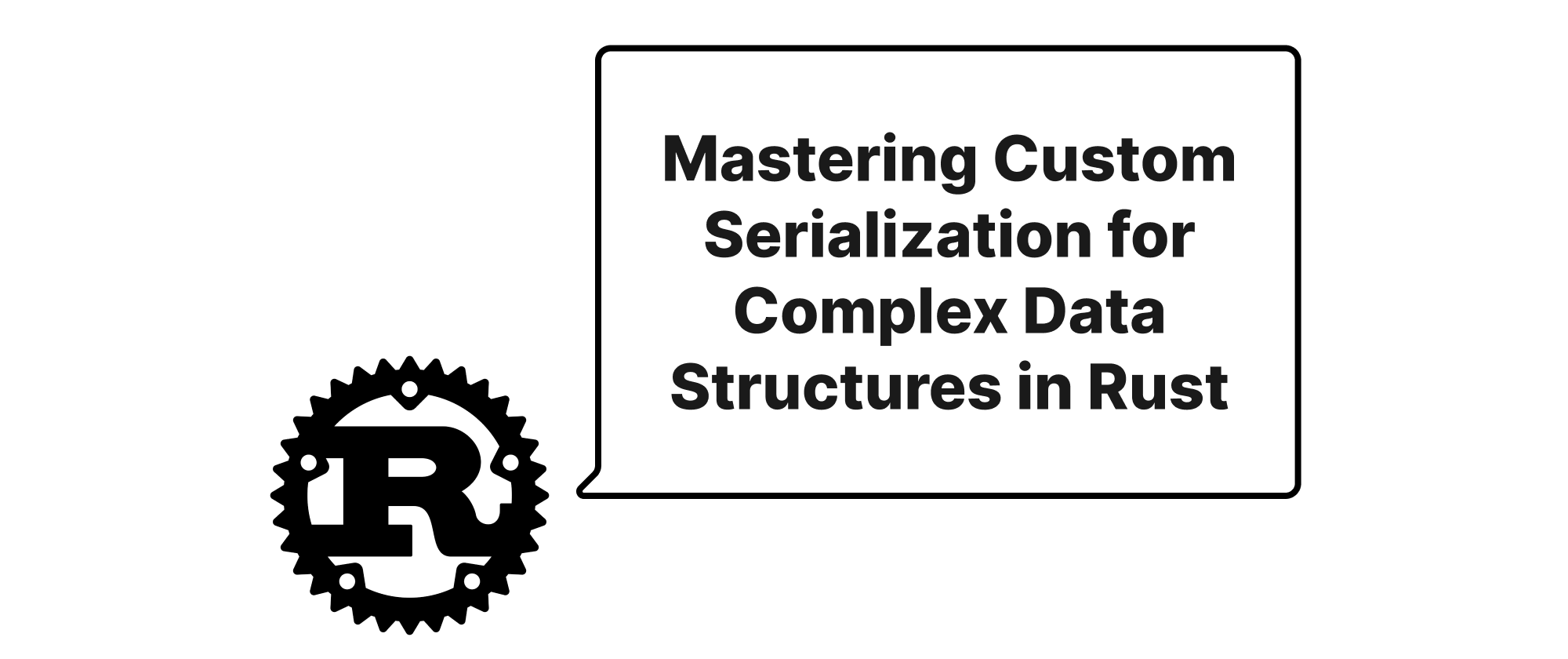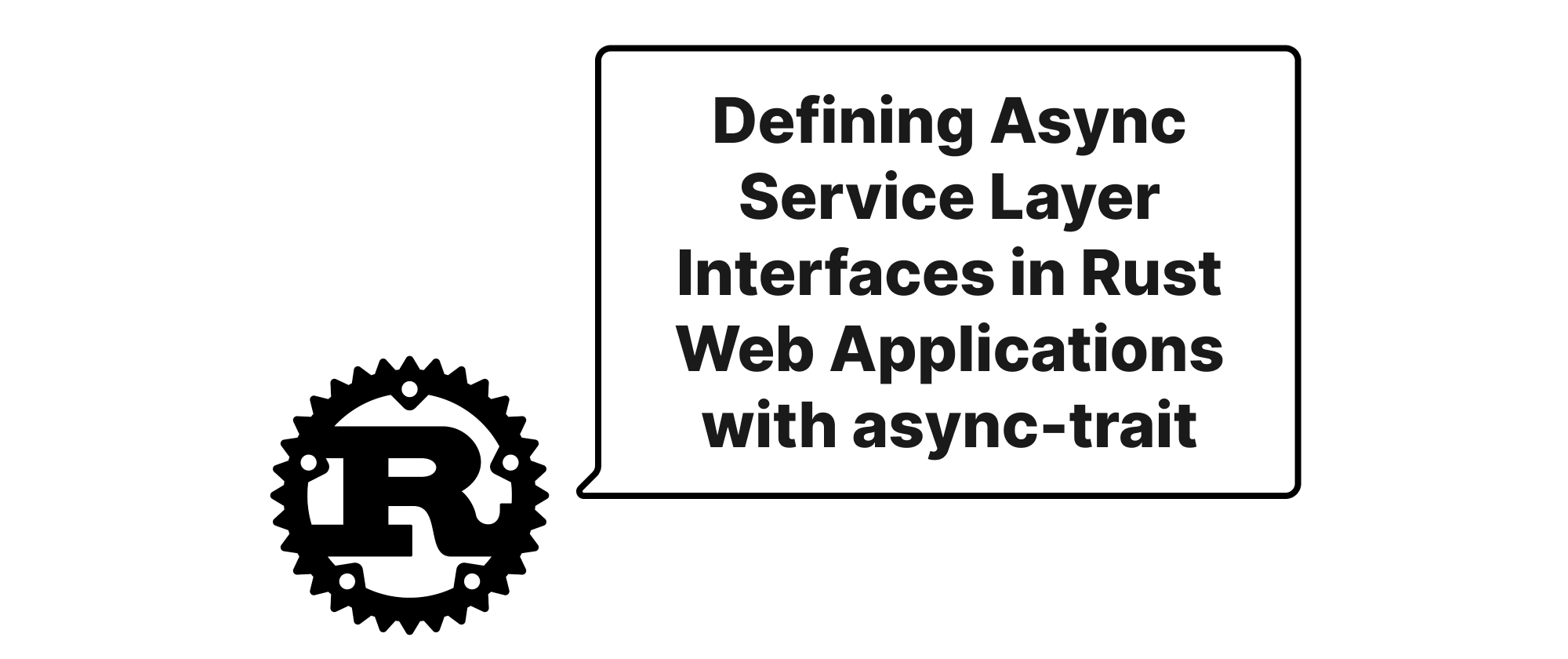Mastering Custom Serialization for Complex Data Structures in Rust
Lukas Schneider
DevOps Engineer · Leapcell

Introduction
In the world of networked applications and data persistence, the ability to convert structured data into a format suitable for transmission or storage, and then reconstructing it back into its original form, is paramount. This process, known as serialization and deserialization, is a cornerstone of modern software development. While Rust's serde framework provides powerful and often automatic derivation for most common data types, there are inevitable scenarios where our data models deviate from simple structs and enums. When dealing with complex types—think custom validation logic during deserialization, non-standard data layouts for serialization, or interacting with external APIs that dictate unusual data formats—the default #[derive(Serialize, Deserialize)] macro falls short. This is where the true power of serde comes alive: crafting custom implementations of serde::Serialize and serde::Deserialize. Understanding how to manually implement these traits empowers developers to tackle virtually any serialization challenge, ensuring data integrity and interoperability.
Core Concepts of serde Customization
Before diving into implementation details, let's establish a foundational understanding of the key concepts involved in custom serde implementations.
serde::Serialize Trait: This trait defines how a Rust type converts itself into an intermediate data format understood by serde. It requires a single method, serialize, which takes a Serializer as an argument. The Serializer is an abstract interface provided by serde that knows how to write out different data primitives (integers, strings, booleans, arrays, maps, etc.). Your implementation instructs the Serializer how to represent your type's internal structure.
serde::Deserialize Trait: This trait defines how a Rust type is constructed from an intermediate data format. It requires a single method, deserialize, which takes a Deserializer as an argument. The Deserializer is an abstract interface that offers methods to read different data primitives. Your implementation uses the Deserializer to extract data and construct an instance of your type, often employing a "Visitor" pattern.
serde::Serializer: This trait typically represents the output format (e.g., JSON, YAML, Bincode). It provides methods like serialize_i32, serialize_str, serialize_struct, serialize_seq, etc., which are called by the Serialize implementation to output data.
serde::Deserializer: This trait also represents the input format. It provides methods like deserialize_i32, deserialize_string, deserialize_struct, deserialize_seq, which are called by the Deserialize implementation (specifically, by a Visitor) to read data.
serde::de::Visitor: When implementing Deserialize for complex types, you often delegate the actual parsing logic to a Visitor. A Visitor is a trait that defines methods for handling different kinds of data types (e.g., visit_i32, visit_str, visit_map, visit_seq). The Deserializer calls the appropriate visit_ method on your Visitor depending on the data it encounters. This pattern allows for robust and flexible deserialization logic.
Implementing Custom Serialization and Deserialization
Let's illustrate these concepts with a practical example. Imagine we have a Point struct that stores Cartesian coordinates. However, for a specific external API, we need to serialize it as a single string "x,y" and deserialize it from the same format, rather than the default struct representation.
use serde::{de, Deserialize, Deserializer, Serialize, Serializer}; use std::fmt; // Our complex data type: a Point struct #[derive(Debug, PartialEq)] struct Point { x: i32, y: i32, } // Custom serialization for Point impl Serialize for Point { fn serialize<S>(&self, serializer: S) -> Result<S::Ok, S::Error> where S: Serializer, { // We want to serialize Point as a string "x,y" let s = format!("{},{}", self.x, self.y); serializer.serialize_str(&s) } } // Custom deserialization for Point impl<'de> Deserialize<'de> for Point { fn deserialize<D>(deserializer: D) -> Result<Self, D::Error> where D: Deserializer<'de>, { // Deserialization will involve creating a Visitor struct PointVisitor; impl<'de> de::Visitor<'de> for PointVisitor { type Value = Point; fn expecting(&self, formatter: &mut fmt::Formatter) -> fmt::Result { formatter.write_str("a string in the format 'x,y'") } fn visit_str<E>(self, value: &str) -> Result<Self::Value, E> where E: de::Error, { // Split the string by comma and parse the parts let parts: Vec<&str> = value.split(',').collect(); if parts.len() != 2 { return Err(de::Error::invalid_value( de::Unexpected::Str(value), &self, )); } let x = parts[0] .parse::<i32>() .map_err(|_| de::Error::invalid_value(de::Unexpected::Str(value), &self))?; let y = parts[1] .parse::<i32>() .map_err(|_| de::Error::invalid_value(de::Unexpected::Str(value), &self))?; Ok(Point { x, y }) } } // Delegate the actual deserialization to our visitor deserializer.deserialize_str(PointVisitor) } } // Example usage fn main() { let p = Point { x: 10, y: 20 }; // Serialize the point let serialized_json = serde_json::to_string(&p).unwrap(); println!("Serialized JSON: {}", serialized_json); // Expected: "10,20" // Deserialize the point let deserialized_p: Point = serde_json::from_str(&serialized_json).unwrap(); println!("Deserialized Point: {:?}", deserialized_p); // Expected: Point { x: 10, y: 20 } assert_eq!(p, deserialized_p); // Test with invalid input let invalid_json = r#""10""#; let result: Result<Point, serde_json::Error> = serde_json::from_str(invalid_json); assert!(result.is_err()); println!("Deserialization error for invalid input: {:?}", result.unwrap_err()); }
In the Point example:
Serializeimplementation: We simply format thexandycoordinates into a single string and then useserializer.serialize_strto output that string. This satisfies the requirement of serializing ourPointinto a custom string format.Deserializeimplementation: This is more involved due to the need for parsing.- We define an inner struct
PointVisitorwhich implementsserde::de::Visitor. expectingprovides a user-friendly message for what the deserializer expects.visit_stris the core of our deserialization logic. Since we know our data will come in as a string, we implement this method to parse the "x,y" format. We perform error handling for malformed strings and parsing failures, mapping them toserde::de::Error.- Finally, in
impl<'de> Deserialize<'de> for Point, we telldeserializerto expect a string type by callingdeserializer.deserialize_str(PointVisitor). TheDeserializerwill internally call ourPointVisitor::visit_strmethod to parse the string.
- We define an inner struct
This pattern extends to more complex scenarios. If you need to deserialize from a map with custom keys or a sequence with varying element types, your Visitor would implement visit_map or visit_seq respectively, handling the iterated elements according to your specific logic.
Another common scenario involves types that don't directly map to serde's primitive types, such as a custom DateTime struct that needs to be serialized into a specific timestamp format.
Applications of custom serde implementations span various use cases:
- Interacting with legacy systems or non-standard APIs: When the data format is fixed and doesn't exactly match Rust's struct layouts.
- Implementing specific data validation during deserialization: The
visit_methods inVisitorare perfect places to add custom validation logic and return ade::Errorif validation fails. - Optimizing data size: Serializing complex objects into compact representations (like the "x,y" string in our
Pointexample). - Handling external enums with non-canonical variants: Mapping external string representations to internal enum variants.
Conclusion
Custom implementations of serde::Serialize and serde::Deserialize are indispensable tools in a Rust developer's toolkit when default derivations are insufficient. By understanding the Serializer, Deserializer, and Visitor traits, we can take full control over how our complex data types are represented in serialized formats and meticulously reconstructed from them. This mastery secures data integrity and ensures seamless interoperability with any data source or sink, no matter how idiosyncratic its format may be. Effectively, custom serde implementations empower Rust applications to speak any data language.


